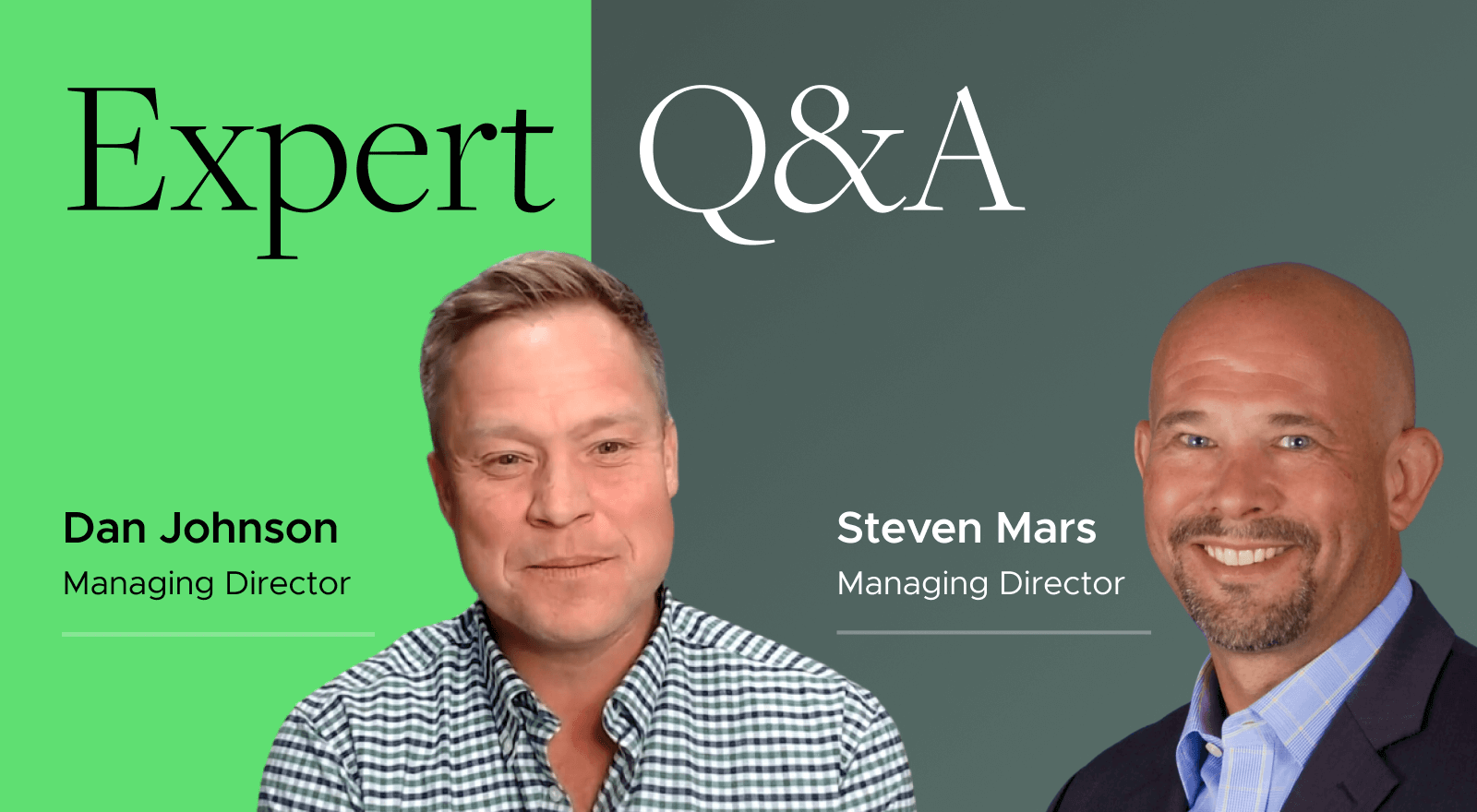
Steven Mars
Steven is Managing Directorat F2 Strategy. He brings over 25 years of wealth management technology experience to F2’s CWS team. Leveraging technology to improve operational efficiency, ensure compliance, and enable scale has been Steve’s focus for his clients throughout his career. When working with clients, he brings a passion for problem-solving and a core belief that combining cutting-edge technology with a talented team delivers the greatest returns. Prior to joining F2, Steve spent over 20 years as the Managing Principal at MD Solutions. When not working, Steve coaches club and high school soccer and serves on the Cape Coral Soccer Association’s board. He resides in Florida.
- MD Solutions
- Advent Software
- Capital Analysts Inc
What would you tell someone just starting out in the industry right now?
Focus on building a strong foundation in both finance and technology. The wealth management industry is increasingly tech-driven, so having a solid understanding of portfolio management systems, data analytics, and automation tools is invaluable. Beyond technical skills, developing a client-first mindset is essential—never lose sight of the human element. Be curious, stay adaptable, and seek mentorship from experienced professionals. Finally, be prepared for constant change. Success in this industry depends on your ability to anticipate trends and embrace innovation.
What do you think WealthTech will allow advisors to do in five years that they can’t do now?
In five years, WealthTech will likely allow advisors to deliver hyper-personalized financial advice at scale. AI and machine learning will enable real-time analysis of client goals, behaviors, and market conditions, creating tailored investment strategies in a matter of seconds. Advisors will also have access to tools that simulate future scenarios more accurately, empowering clients to make better-informed decisions. Automation will free advisors from repetitive tasks, allowing them to focus entirely on building relationships and providing strategic guidance.
What has changed the most since you started out in the industry?
The most significant change has been the rise of technology as a central pillar of wealth management. When I started, processes were far more manual, and technology played a limited, supporting role. Today, digital platforms, AI, and data analytics have transformed how advisors interact with clients and manage portfolios. The shift toward automation and integrated systems has streamlined operations, but also created new challenges around cybersecurity, data management, and maintaining the human touch. Additionally, client expectations have evolved—people now demand greater transparency, real-time access to information, and more personalized services. The industry has moved from being product-focused to being experience-focused, and technology is at the heart of that transformation.

Steven Mars
Steven is Managing Directorat F2 Strategy. He brings over 25 years of wealth management technology experience to F2’s CWS team. Leveraging technology to improve operational efficiency, ensure compliance, and enable scale has been Steve’s focus for his clients throughout his career. When working with clients, he brings a passion for problem-solving and a core belief that combining cutting-edge technology with a talented team delivers the greatest returns. Prior to joining F2, Steve spent over 20 years as the Managing Principal at MD Solutions. When not working, Steve coaches club and high school soccer and serves on the Cape Coral Soccer Association’s board. He resides in Florida.
- MD Solutions
- Advent Software
- Capital Analysts Inc
What would you tell someone just starting out in the industry right now?
Focus on building a strong foundation in both finance and technology. The wealth management industry is increasingly tech-driven, so having a solid understanding of portfolio management systems, data analytics, and automation tools is invaluable. Beyond technical skills, developing a client-first mindset is essential—never lose sight of the human element. Be curious, stay adaptable, and seek mentorship from experienced professionals. Finally, be prepared for constant change. Success in this industry depends on your ability to anticipate trends and embrace innovation.
What do you think WealthTech will allow advisors to do in five years that they can’t do now?
In five years, WealthTech will likely allow advisors to deliver hyper-personalized financial advice at scale. AI and machine learning will enable real-time analysis of client goals, behaviors, and market conditions, creating tailored investment strategies in a matter of seconds. Advisors will also have access to tools that simulate future scenarios more accurately, empowering clients to make better-informed decisions. Automation will free advisors from repetitive tasks, allowing them to focus entirely on building relationships and providing strategic guidance.
What has changed the most since you started out in the industry?
The most significant change has been the rise of technology as a central pillar of wealth management. When I started, processes were far more manual, and technology played a limited, supporting role. Today, digital platforms, AI, and data analytics have transformed how advisors interact with clients and manage portfolios. The shift toward automation and integrated systems has streamlined operations, but also created new challenges around cybersecurity, data management, and maintaining the human touch. Additionally, client expectations have evolved—people now demand greater transparency, real-time access to information, and more personalized services. The industry has moved from being product-focused to being experience-focused, and technology is at the heart of that transformation.



